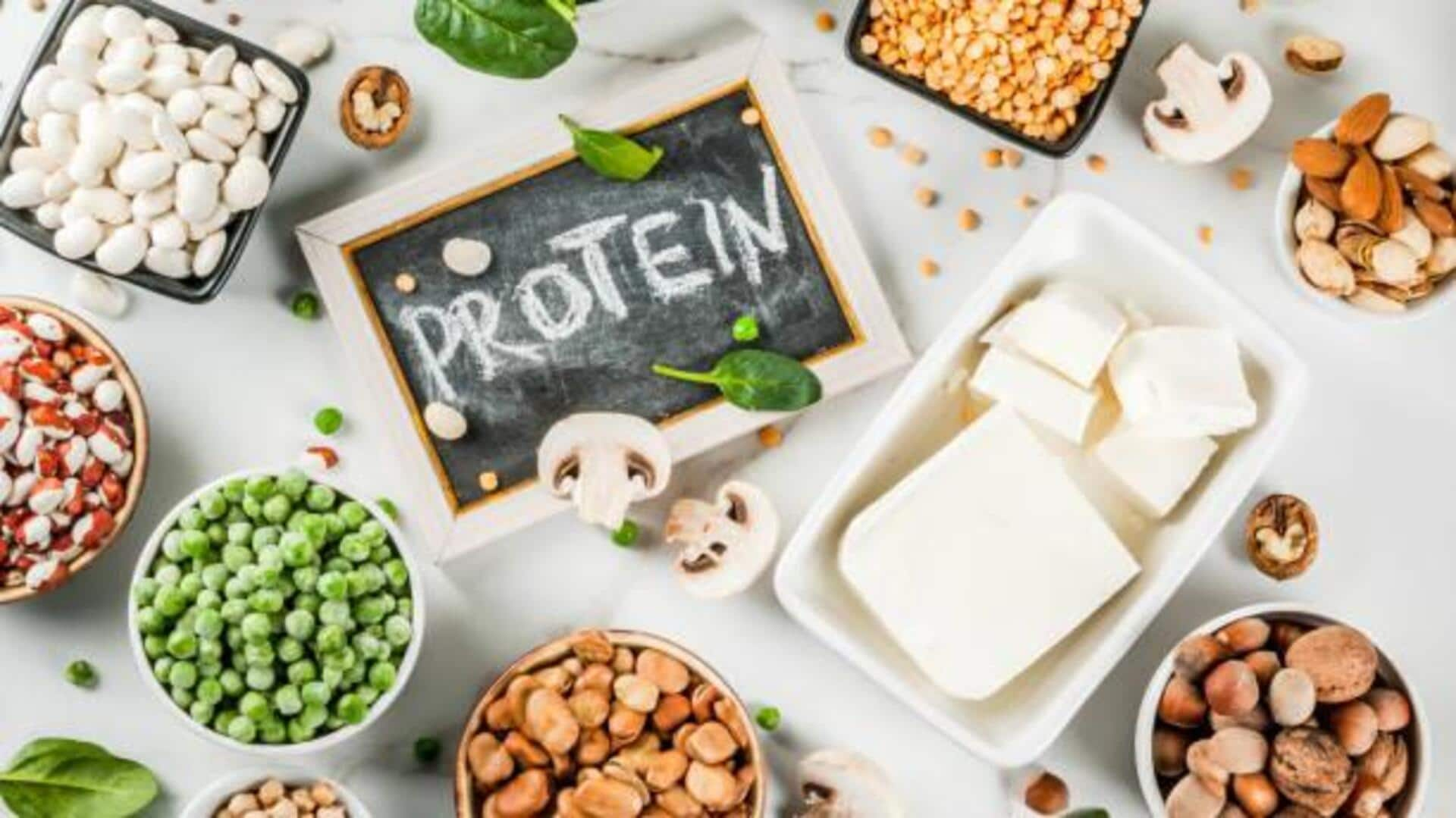
Is too much protein bad for you?
What's the story
Protein is an essential part of our diet, but myths surrounding its intake can be quite confusing. Many are under the impression that excessive protein intake can prove harmful to health. But knowing the truth behind these myths is key to keeping your diet in balance. Here, we bust common misconceptions about protein consumption and tell how to incorporate it into daily diet.
Kidney health
Myth: High protein equals kidney damage
Another common myth is that high protein intake damages the kidneys. Studies show that this concern mainly applies to those with kidney issues. For healthy individuals, having higher amounts of protein doesn't necessarily damage the kidneys. However, it is important to stay hydrated and balance out other nutrients in the diet while increasing protein intake.
Metabolism facts
Myth: Excess protein turns into fat
Another common belief is that excess protein automatically converts into fat. The body uses protein for various functions, including muscle repair and enzyme production, before considering storage as fat. Only when caloric intake significantly exceeds expenditure does the body store excess calories as fat, regardless of whether they come from proteins or other macronutrients.
Plant power
Myth: Plant proteins are incomplete
Some argue that plant-based proteins are inferior because they lack certain amino acids found in animal products. While individual plant sources may not contain all essential amino acids, combining different plant foods can provide complete proteins. For example, pairing legumes with grains ensures a full amino acid profile without relying on animal products.
Muscle growth reality
Myth: More protein means more muscle
The biggest misconception is that many people think that just eating more protein will lead to more muscle. Though you need enough protein for muscles to grow, it needs to be combined with resistance training and overall caloric surplus to work effectively. Eating too much without exercising won't magically build muscle.
Dietary balance
Tip: Balance is key in diet planning
Achieving a balanced diet is more than just protein focus. It's about considering overall caloric needs and getting the right mix of carbs, fats, vitamins, and minerals, along with proteins. Nutrition professionals can help tailor dietary plans to meet individual health goals and lifestyle requirements. This promotes a holistic approach to nutrition and well-being.